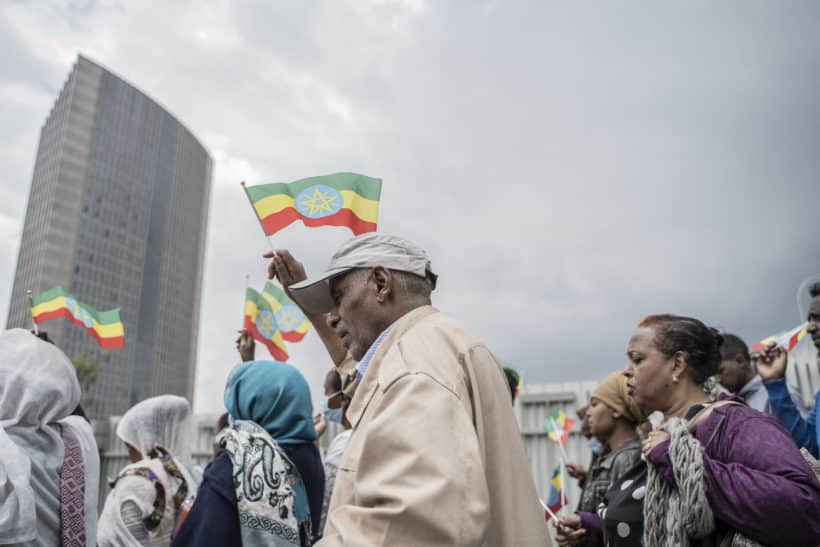
NAIROBI, Oct 5 (Reuters) – Ethiopia’s government has accepted an invitation by the African Union to participate in peace talks aimed at ending a two-year conflict with rival Tigray forces, the prime minister’s national security adviser said on Wednesday.
Tigray forces have has yet to respond to the invitation for talks this weekend in South Africa, which would be the first formal negotiations between the two sides since the outbreak of war in November 2020, two diplomatic sources said.
The conflict has killed thousands of civilians and uprooted millions. Both sides had previously said they were prepared to participate in AU-mediated talks but intense fighting has continued to rage across Tigray.
The Ethiopian government “has accepted this invitation which is in line with our principled position regarding the peaceful resolution of the conflict and the need to have talks without preconditions,” Redwan Hussein, the national security adviser to Prime Minister Abiy Ahmed, said on Twitter.
AU Commission Chair Moussa Faki also invited Debretsion Gebremichael, who leads Tigray’s ruling political party, to the talks in a letter seen by Reuters.
The letter was dated Oct. 1, but Getachew Reda, a spokesman for Debretsion’s Tigray People’s Liberation Front (TPLF), said on Tuesday that he was not aware of any imminent talks.
Getachew did not immediately respond to a request for comment on Wednesday about the Ethiopian government accepting the AU invitation.
The TPLF said last monthit was ready for a ceasefire and would accept an AU-led peace process after previously raising objections to AU proposals.
Olusegun Obasanjo, the AU High Representative for the Horn of Africa, will lead the negotiations with support from former Kenyan President Uhuru Kenyatta and former South African deputy president Phumzile Mlambo-Ngcuka, according to the AU letter.
No formal talks between the two sides were held during a five-month ceasefire between March and August. Fighting resumed on Aug. 24.
Prime Minister Abiy’s government accuses the TPLF, which dominated Ethiopia’s ruling coalition until Abiy came to power in 2018, of trying to reassert Tigrayan dominance over Ethiopia.
The TPLF accuses Abiy of over-centralising power and oppressing Tigrayans. Both dismiss each other’s accusations.
(Reporting by Giulia Paravicini; Editing by Clarence Fernandez, John Stonestreet and Toby Chopra)

